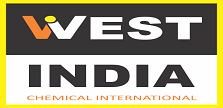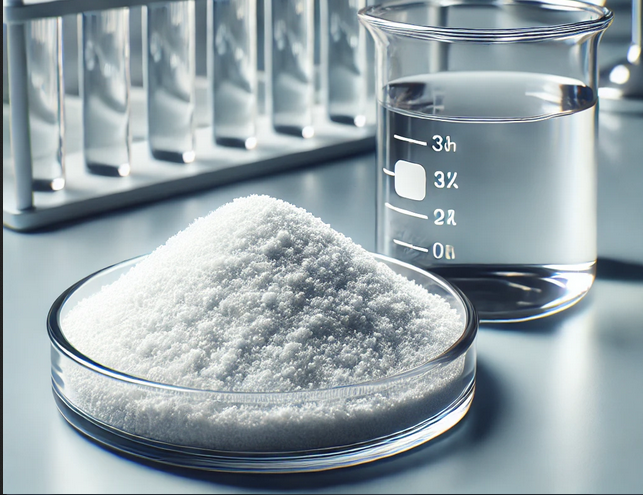Polyacrylic Acid Supplier, Manufacturer, and Distributor in Gujarat, India
Polyacrylic acid (PAA) is a high-performance polymer that plays a crucial role in various industrial applications due to its exceptional water-absorbent properties, versatility, and cost-effectiveness. As a leading supplier, manufacturer, and distributor of polyacrylic acid in Gujarat, India, West India Chemical is committed to providing high-quality PAA products to meet the diverse needs of our clients. This comprehensive blog will explore the properties, applications, uses, and benefits of polyacrylic acid, while also highlighting why West India Chemical is your trusted partner for sourcing this essential chemical.
Overview of Polyacrylic Acid
Properties of Polyacrylic Acid
Polyacrylic acid is a synthetic polymer of acrylic acid, characterized by its high molecular weight and unique chemical structure, which gives it excellent water-absorbent properties. Some key properties of polyacrylic acid include:
- Chemical Formula: (C3H4O2)n
- Molecular Weight: Varies depending on the degree of polymerization
- Appearance: White to off-white powder or gel-like substance
- Solubility: Soluble in water, forming a viscous solution
- pH: Acidic, typically around 2.5 to 3.0 in a 1% aqueous solution
- Stability: Stable under normal conditions, but may degrade at high temperatures or in the presence of strong acids or bases
- Viscosity: The viscosity of polyacrylic acid solutions varies with concentration and molecular weight
Production of Polyacrylic Acid
Polyacrylic acid is produced through the polymerization of acrylic acid monomers. The production process typically involves the following steps:
- Polymerization: Acrylic acid monomers are polymerized in the presence of a free-radical initiator, leading to the formation of polyacrylic acid chains. The polymerization process can be controlled to achieve the desired molecular weight and properties of the final product.
- Purification: The resulting polymer is purified to remove unreacted monomers, impurities, and by-products.
- Drying: The purified polyacrylic acid is dried to achieve the desired moisture content and consistency.
- Quality Control: The final product undergoes rigorous quality control testing to ensure it meets industry standards and client specifications.
Applications of Polyacrylic Acid
Water Treatment Industry
Polyacrylic acid is widely used in the water treatment industry due to its excellent scale inhibition and dispersant properties:
- Scale Inhibitor: Polyacrylic acid is used as a scale inhibitor in cooling towers, boilers, and reverse osmosis systems to prevent the formation of scale deposits, which can reduce efficiency and increase maintenance costs.
- Dispersant: It acts as a dispersant in water treatment formulations, helping to keep suspended particles, such as dirt and silt, dispersed in water, preventing them from settling and forming deposits.
- Coagulant Aid: Polyacrylic acid is used as a coagulant aid in water treatment processes, enhancing the effectiveness of coagulants in removing suspended solids and improving water clarity.
Detergent and Cleaning Industry
In the detergent and cleaning industry, polyacrylic acid is valued for its ability to enhance cleaning performance and prevent redeposition of soil:
- Detergent Builder: Polyacrylic acid is used as a detergent builder in laundry and dishwashing detergents, improving the cleaning efficiency by softening water and enhancing the performance of surfactants.
- Anti-Redeposition Agent: It acts as an anti-redeposition agent in detergents, preventing soil and dirt from redepositing on fabrics during the washing process.
- Scale Inhibitor: Polyacrylic acid is used in cleaning formulations to inhibit the formation of scale deposits on surfaces, such as glass, tiles, and bathroom fixtures.
Paints and Coatings Industry
The paints and coatings industry utilizes polyacrylic acid for its rheology-modifying properties and ability to improve the stability and performance of formulations:
- Thickening Agent: Polyacrylic acid is used as a thickening agent in water-based paints and coatings, providing the desired viscosity and flow properties for easy application and improved coverage.
- Dispersant: It acts as a dispersant in pigment formulations, helping to evenly distribute pigments and fillers in the paint, resulting in a smooth and uniform finish.
- Stabilizer: Polyacrylic acid is used as a stabilizer in coatings, preventing the separation of ingredients and ensuring consistent performance over time.
Adhesives and Sealants
Polyacrylic acid plays a crucial role in the formulation of adhesives and sealants, providing enhanced bonding and flexibility:
- Adhesive Component: Polyacrylic acid is used as a key component in pressure-sensitive adhesives, providing strong adhesion to various surfaces, including paper, plastic, and metal.
- Rheology Modifier: It acts as a rheology modifier in sealant formulations, ensuring that the sealant has the desired consistency and flow properties for easy application and effective sealing.
- Flexibility Enhancer: Polyacrylic acid enhances the flexibility and durability of adhesives and sealants, making them suitable for use in applications requiring long-term performance.
Superabsorbent Polymers
Polyacrylic acid is a key ingredient in the production of superabsorbent polymers (SAPs), which are used in various applications requiring high water absorption capacity:
- Diapers and Hygiene Products: Polyacrylic acid-based superabsorbent polymers are widely used in diapers, adult incontinence products, and sanitary napkins, providing high absorbency and moisture retention.
- Agriculture: SAPs are used in agriculture to improve soil moisture retention, reducing the frequency of irrigation and enhancing crop yields.
- Medical Applications: Superabsorbent polymers are used in wound dressings and medical pads to absorb exudates and maintain a moist wound environment, promoting faster healing.
Textile Industry
In the textile industry, polyacrylic acid is used for its ability to improve fabric softness, dye retention, and process efficiency:
- Fabric Softener: Polyacrylic acid is used as a fabric softener in textile finishing processes, improving the hand feel and drape of fabrics.
- Dye Fixative: It acts as a dye fixative in textile dyeing, enhancing colorfastness and preventing dyes from bleeding or fading during washing.
- Thickening Agent: Polyacrylic acid is used as a thickening agent in textile printing pastes, ensuring even application and sharp print quality.
Pharmaceutical and Personal Care Industry
Polyacrylic acid is used in the pharmaceutical and personal care industry for its film-forming, thickening, and stabilizing properties:
- Pharmaceutical Gels: Polyacrylic acid is used as a thickening agent in pharmaceutical gels and creams, providing the desired consistency and enhancing the stability of active ingredients.
- Controlled Release Formulations: It is used in controlled release drug formulations, where it acts as a matrix to control the release rate of the drug, ensuring sustained therapeutic effects.
- Personal Care Products: Polyacrylic acid is used in personal care products, such as lotions, shampoos, and sunscreens, as a film-forming agent and emulsifier, improving product texture and performance.
Oil and Gas Industry
In the oil and gas industry, polyacrylic acid is used to enhance drilling and production processes:
- Drilling Fluids: Polyacrylic acid is used as a viscosifier in drilling fluids, improving the carrying capacity of the fluid and preventing the settling of cuttings during drilling operations.
- Scale Inhibition: It acts as a scale inhibitor in oil and gas production, preventing the formation of scale deposits in pipelines and equipment, reducing maintenance costs and downtime.
- Enhanced Oil Recovery: Polyacrylic acid is used in enhanced oil recovery processes, where it helps to improve the viscosity of injected fluids, increasing oil recovery rates.
Agriculture
Polyacrylic acid is used in agriculture to improve soil quality and water management:
- Soil Conditioner: Polyacrylic acid is used as a soil conditioner to improve soil structure and water retention, promoting healthy plant growth and reducing the need for frequent irrigation.
- Fertilizer Additive: It is used as a binder and dispersant in fertilizer formulations, ensuring even distribution of nutrients and improving their availability to plants.
- Pesticide Carrier: Polyacrylic acid is used as a carrier for pesticides, enhancing their efficacy and reducing the environmental impact of agricultural practices.
Benefits of Using Polyacrylic Acid
High Water Absorption
One of the key benefits of polyacrylic acid is its high water absorption capacity. This property makes it an essential ingredient in superabsorbent polymers used in hygiene products, agriculture, and medical applications. The ability of polyacrylic acid to absorb and retain large amounts of water helps to improve the performance and efficiency of these products.
Versatility
Polyacrylic acid’s versatility allows it to be used across a wide range of industries, from water treatment and detergents to paints, adhesives, textiles, and pharmaceuticals. Its unique properties, such as its ability to modify viscosity, inhibit scale, and stabilize formulations, make it a valuable ingredient in many different products and processes.
Cost-Effective
The production of polyacrylic acid is a cost-effective process, making it an economical choice for various industrial applications. Its effectiveness at low concentrations further enhances its cost-effectiveness, making it a preferred polymer in many formulations and processes.
Environmental Benefits
Polyacrylic acid is considered environmentally friendly due to its ability to
improve water management and reduce waste. In agriculture, for example, the use of polyacrylic acid-based superabsorbent polymers helps to reduce water usage and improve crop yields, contributing to more sustainable farming practices.
Stability and Durability
Polyacrylic acid is highly stable under normal conditions, making it an ideal ingredient for products that require long-term performance. Its stability ensures that it remains effective over time, providing consistent results in applications such as water treatment, adhesives, and coatings.
Improved Product Quality
The use of polyacrylic acid helps to enhance the quality of the final product by improving texture, stability, and performance. In personal care products, for example, polyacrylic acid improves the texture and feel of lotions and creams, leading to increased consumer satisfaction.
Why Choose West India Chemical?
Quality Assurance
At West India Chemical, we are committed to delivering polyacrylic acid of the highest quality. Our stringent quality control processes ensure that our products meet the rigorous standards required by our clients. We source our raw materials from trusted suppliers and employ advanced production techniques to achieve the desired purity and consistency.
Customized Solutions
We understand that different applications require different specifications of polyacrylic acid. Our team of experts works closely with clients to understand their specific needs and provide customized solutions that meet their requirements. Whether you need polyacrylic acid for water treatment.
Product Inquiry Email: westindiachemical@gmail.com




